CHANGE MANAGEMENT – PATHWAYS AND USEFUL TOOLS
Lisbon (Portugal)
ErasmusPlus-InServiceTraining
Pre-Registration
Would you like to participate in this course next school year 2022-2023? Please make a pre-registration so we can keep you informed about this course.
Final Registration
You want to confirm your participation for this course in the schoolyear 2022-2023?
Dates can be subject to change and are only final after official confirmation by the course provider.
CONTENT
Times are volatile, uncertain and complex. Schools have to be transparent, flexible and solution orientated. An innovative school culture is needed.
To mobilise support for innovation, education systems need to become better at communicating the need and building support for change. Investing in change-management skills will be critical; and it is vital that teachers become active agents for change contributing to better all and improving every student’s development and achievement.
The course wants to contribute to the empowerment of schools as learning organisations. During the course sessions we have a look at different tools to help you when you are in an innovation process.
At the end of the course, the participants should be able to define the challenges their school faces and have an idea on how to start a process that will lead to an innovative school culture.

PRACTICALITIES
PORTUGAL – LISBON SOUTH BANK
The course is organized in the training facilities of Almadaforma, located at the South Bank of the river Tejo in Lisbon (15 km from Lisbon airport).
The participants are free to stay in a hotel of their own choice, however it’s advised to stay somewhere at the South Bank (=Almada) to save transport time during rush hour.
Hotel Mercure Lisboa – Almada (Rua Abel Salazar 9, 2805-313 Almada) is situated immediately near the tramline that leads to Almadaforma.
COURSE FEE
- School and study visits are part of the programme, as well as the informal moments, lunches and breaks. During those moments a lot of interaction, exchange and learning happens.
- We offer a cost structure that includes all formal and informal learning activities and opportunities.
- For a detailed explanation, have a look at our ‘Cost Structure‘.
FUNDING
- You can request an Erasmus Plus grant from your national agency which will cover almost all costs of this course.
- We can guide you through the process of funding and application. To do so, you need the make a pre-registration.
- After pre-registration, we’ll contact you by mail and provide the application help.
TAXI FROM AIRPORT TO HOTEL
There is a taxi service at the airport that can drive you to the hotel.
It’s particularly difficult to leave Lisbon between 16:30 and 19:00 h and to enter Lisbon between 08:30 and 10:30 h.
METRO / AEROBUS , FERRY AND TAXI
You can take the metro located at exit of the arrival hall of the airport and leave the metro at the terminus station Cais do Sodré.
The Aerobus is another good way to travel from and to the airport. The Aerobus provides a connection between the airport and Cais do Sodré.
At the boat station of Cais do Sodré, you can take the ferry boat to Cacilhas (south bank of River Tejo). During working hours, there is a crossing every 15 minutes. The ferry takes 12 minutes to arrive on the other side of the river.
At Cacilhas you can take a taxi or tram (Line 3, direction Universidade, stop Ramalha) for the remaining 5 km.
RENTAL CAR
Sharing a rental car with 3 other people for all transport during the course, can be interesting.The airport is connected directly to the hotel by the Ring of Lisbon and the North-South Connection (Eixo Norte – Sul).
Crossing the bridge, you have a marvellous view on Lisbon, the estuary and both banks of the River Tejo.
Bring or rent a GPS and check the prices of rental cars on the Internet.
TRANSPORT FROM HOTEL TO ALMADAFORMA
Walk 400 m from the hotel to the tram stop ‘Ramalha’, where you take the tram of Line 3 to ‘Universidade’ .
Leave the tram at stop ‘Monte de Caparica’.
Walk 600 m through the village to Almadaforma.

